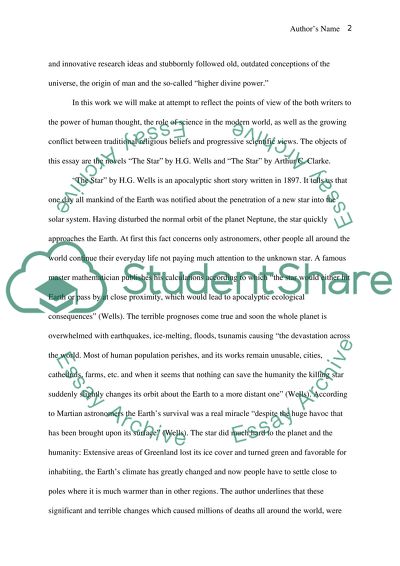Cite this document
(“Literary Criticism on The Star by H.G. Wells Research Paper - 1”, n.d.)
Literary Criticism on The Star by H.G. Wells Research Paper - 1. Retrieved from https://studentshare.org/english/1576584-literary-criticism-on-the-star-by-hg-wells
Literary Criticism on The Star by H.G. Wells Research Paper - 1. Retrieved from https://studentshare.org/english/1576584-literary-criticism-on-the-star-by-hg-wells
(Literary Criticism on The Star by H.G. Wells Research Paper - 1)
Literary Criticism on The Star by H.G. Wells Research Paper - 1. https://studentshare.org/english/1576584-literary-criticism-on-the-star-by-hg-wells.
Literary Criticism on The Star by H.G. Wells Research Paper - 1. https://studentshare.org/english/1576584-literary-criticism-on-the-star-by-hg-wells.
“Literary Criticism on The Star by H.G. Wells Research Paper - 1”, n.d. https://studentshare.org/english/1576584-literary-criticism-on-the-star-by-hg-wells.


